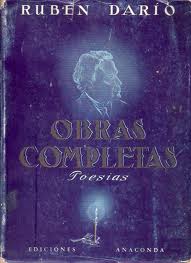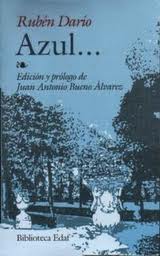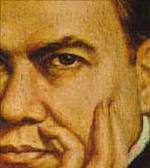Works of Ruben Dario
Ruben Dario, Nicaraguan poet, is considered the father of the Modernism movement. Although the Spanish influence in the Latin American literature was quite scarce, those writers who rejected the Spanish influence had a great importance in the Spanish literature of the 20th century. Ruben Dario, especially, was considered a genius.
Ruben Dario - Works
Ruben Dario's influence in the poets of the 20th century was immense, both in Spain and America. He got to be an extremely popular writer, and his works were memorized in language schools and imitated by hundreds of young poets. However, for all his success, after the First World War poets rejected Modernism, considering it outdated and too rhetoric.
Poetry

Ruben Dario was a prolific poet, and he wrote poems since he was 12, which earned him the name "the boy poet". He was greatly influenced by the French poets, especially Victor Hugo in the beginning, although later he veered more towards the Parnasian writers. The works of the Symbolist Paul Verlaine also played an important role in those first works.
Even if during that period the Spanish writers didn't have much influence in the Latin American writers (they rejected it because of the Spanish oppression suffered while they were colonies), Ruben Dario was very influenced by them. Zorrilla and Campoamor were some of his favorites, together with Quevedo.
After spending some time in Spain, he became more conscious of the role they, as writers, had with the Spanish language, and of the difficult and decadent times Spain was going through. To honor the great Spanish writers, he often found inspiration in characters and elements from the past.
The three books that define Ruben Dario's production are "Azul..." (1888), "Prosas profanas y otros poemas" (1896) and "Cantos de vida y esperanza" (1905). His works before "Azul..." are considered his prehistoric literature, and the Spanish influence is quite obvious.

"Azul..." is considered the first book of Modernism in the Spanish language. It's composed of both prose and poems with a big metric variety, and it shows some of Ruben Dario's recurrent worried. "Prosas profanas y otros poemas" marks the peak of Modernism, and the poems have a high erotic content. In this book is where Ruben Dario shows his whole imagery: France in the 18th century, the Spanish and Italian Middle Ages, Greek mythology, etc. "Cantos de vida y esperanza" is a more intimate and reflective book, but keeping the Modernist topics.
Ruben Dario was of the opinion that poetry was basically music, so rhythm had a great importance in all his works, which were a revolution for the Spanish metric. His use of the Alexandrine verses in particular was of enormous influence in the Modernist movement. The Nicaraguan poet is the best example of the adaptation of the classic rhythms (Greco-Roman) to the Spanish language poetry.
He also responsible for the renovation of the lyrical vocabulary. Ruben Dario used whole semantic fields to convey different meanings, like flowers, gemstones, luxury materials or exotic animals. He even invented his own words, and also used Latin or Greek terms.

The topics in Ruben Dario's works are normally recurrent, and they are also repeated by some writers who were influenced by him, especially the young poets he met while in Madrid:
- Erotism: it's the central topic of all of Ruben Dario's works. His erotism is purely sensorial.
- Exotism: most of Ruben Dario's works are set in far and exotic places, and it's a sign of the reject felt by the Modernists towards the real world they live in.
- Occultism: in his last years of life Ruben Dario went through phases of total obsession with death, which shows in his work.
- Civic and social issues: although it's not a major theme in his works, Ruben Dario also composed poems about national heroes and historical events.
Prose
Many people forget the Ruben Dario also wrote prose. He spent most of his life contributing articles, chronicles and literary critiques for several newspapers, especially La Nación in Argentina.
He wrote several novels, the first with Eduardo Poirier in Chile, called "Emenilda". His second novel was set in Ancient Rome and was called "El hombre de oro" (1897). He started to write his autobiography, but he never finished. Some of the parts were published in La Nación under the name "El Oro de Mallorca".

